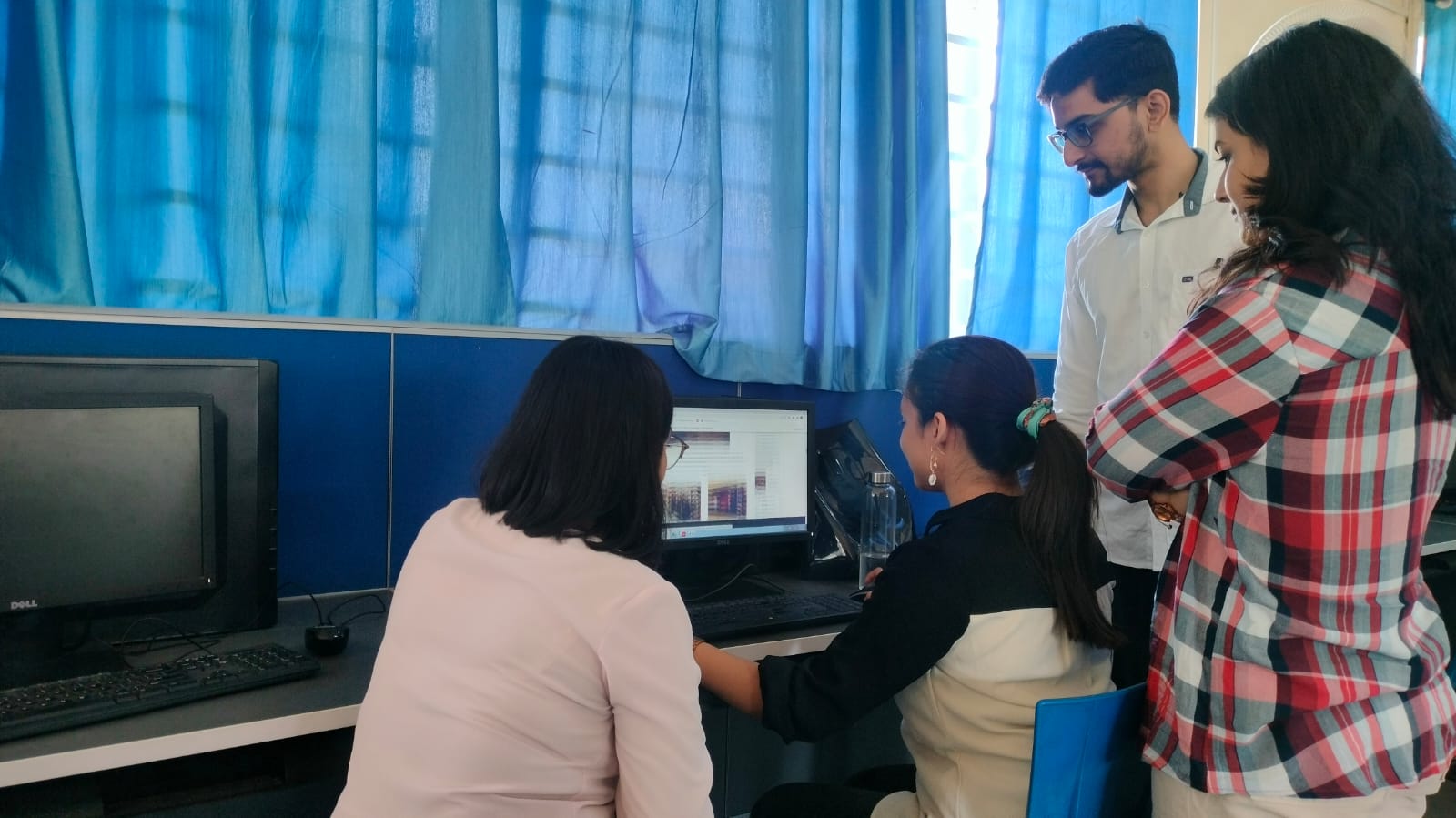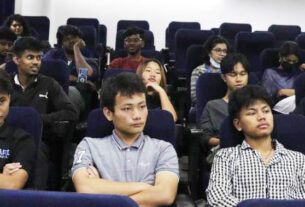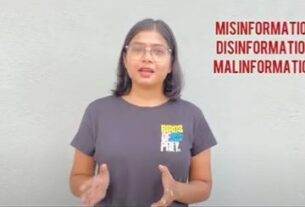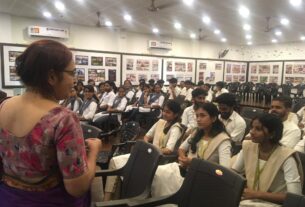Newsletter for January 2024
Dear readers,
The new year at IIJNM kicked off with an energetic start, as students eagerly involved themselves in exploring more about media and technology. Students looked closely at how technology can have both good and bad sides. From debunking various claims, presenting how social media algorithms works students used their creativity to show what they learned about media in different ways, making the most of every chance to learn more.
Debunking Social Media Posts:
Our students gathered a range of social media posts and took on the challenge of investigating these posts to determine their truthfulness. They used their critical thinking skills to dig deeper into finding the source of various claims and their authenticity. These included claims about health, climate, and more.
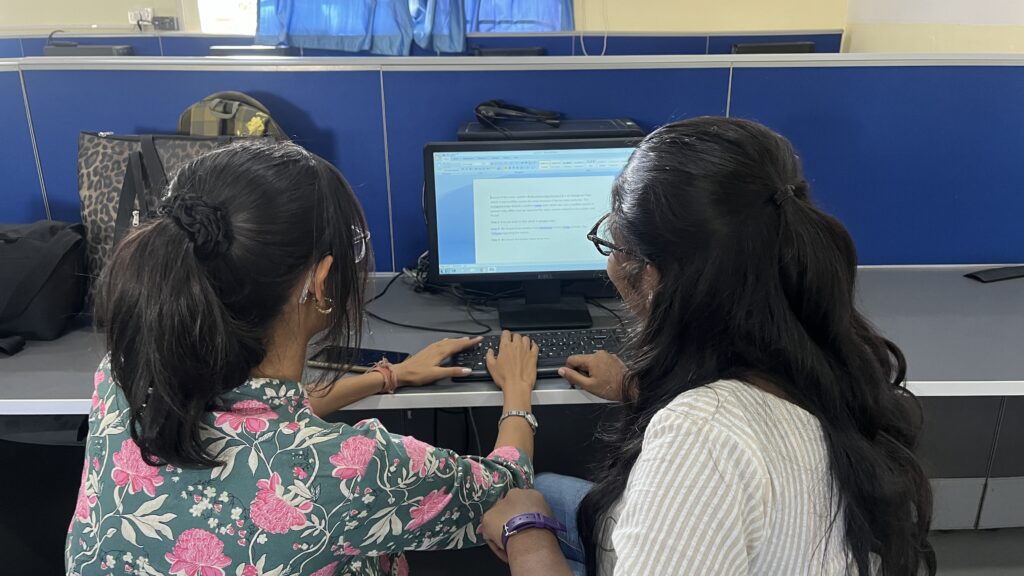
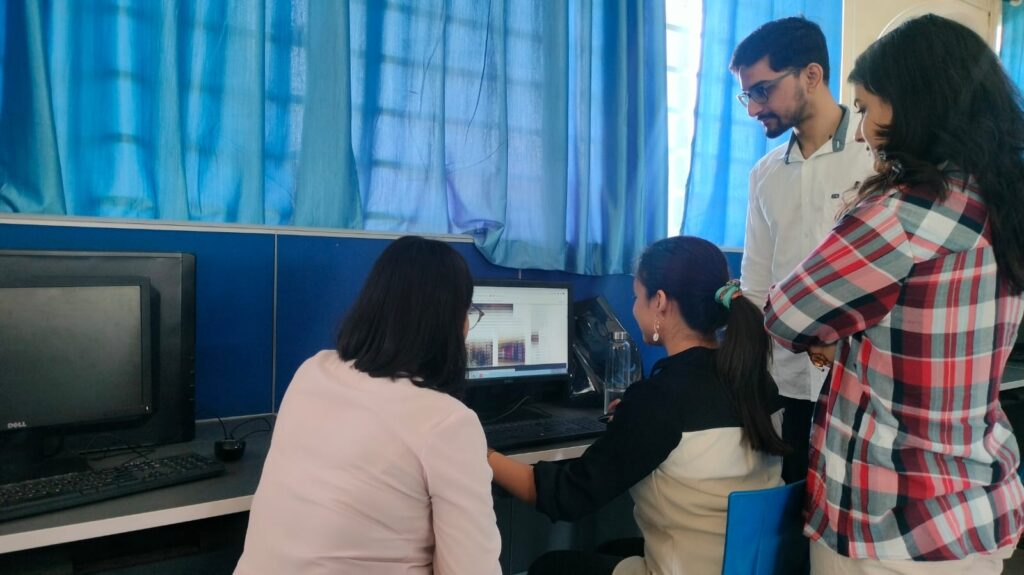
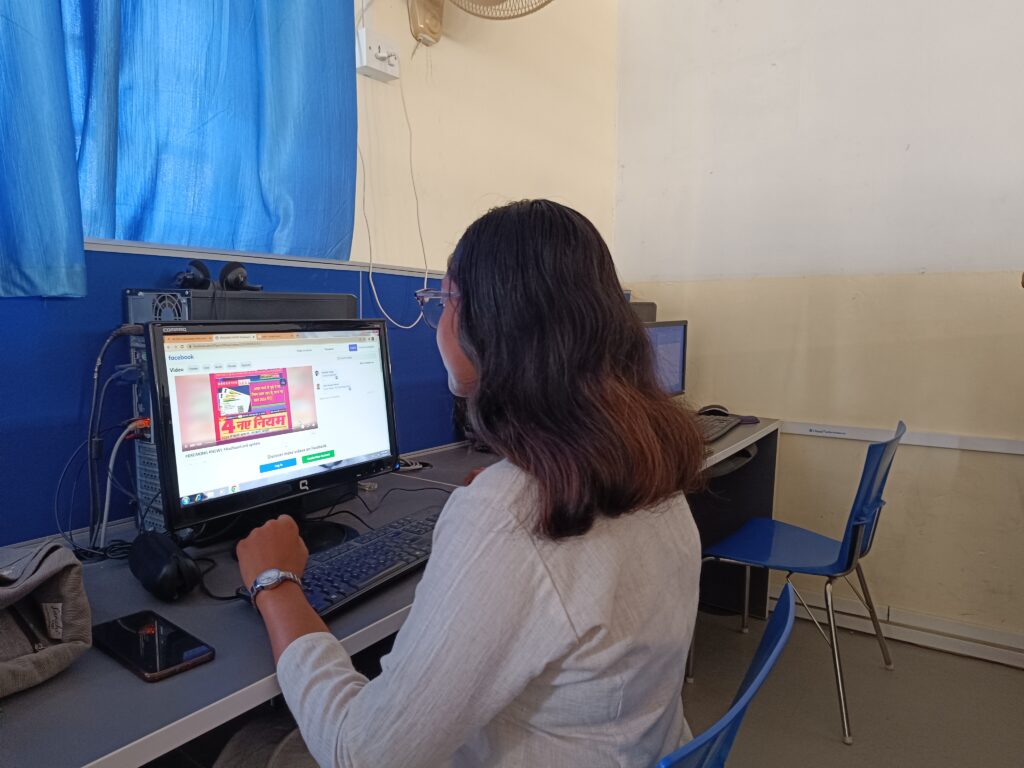
Creating Informative Videos on Debunking posts:
The students created detailed videos documenting their process of debunking the posts. In these videos, they explained the tools and sources they used to investigate and debunk the claims.
Report on Media Literacy Festival by Arunima Pal, student of Multimedia Journalism
Awareness is smartness: Media Literacy Festival at IIJNM
Ideas about authenticity, reliability and veracity of information were exchanged at the media literacy festival organized by the Indian Institute of Journalism and New Media (IIJNM).
Trainee journalists at IIJNM interchanged and spread the importance of quality journalism and unadulterated information circulation at the Media Literacy Festival held on Jan. 17 at the IIJNM campus.
The fest aimed at making people literate about the various facets of information consumption in recent times when most of us are bombarded with “facts” and figures- wanted or unwanted.
Information Booths
The presentations by the students in charge of the four Information Booths were both enlightening and enriching. Ishita and Sumanta presented “How to verify news and their sources?” Some of the key takeaways from their presentation were: Not all information is accurate and reliable, hence one has to be responsible consumers of information. News is as important as its sources and, pause, check and think before forwarding information. An educational PPT added substance to their presentation.
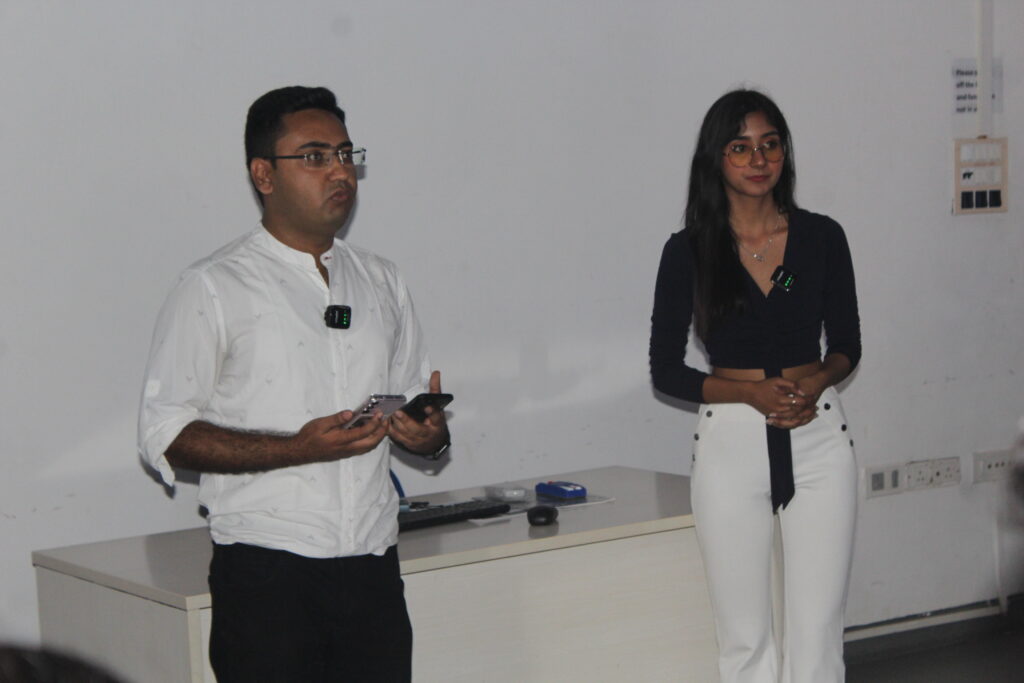
Next up, Sunayana and Akshay spoke on “Filter Bubble”. Their presentation focused on getting trapped within the walls of social media—a condition which only the very few of us would be unfamiliar with. They talked about how algorithms in social media pages work to create a personalized and customized space for every user which leads to augmenting our confirmation biases and narrows down our thought processes. They warned us of the darker side of “our comfort spaces”—confinement and isolation.
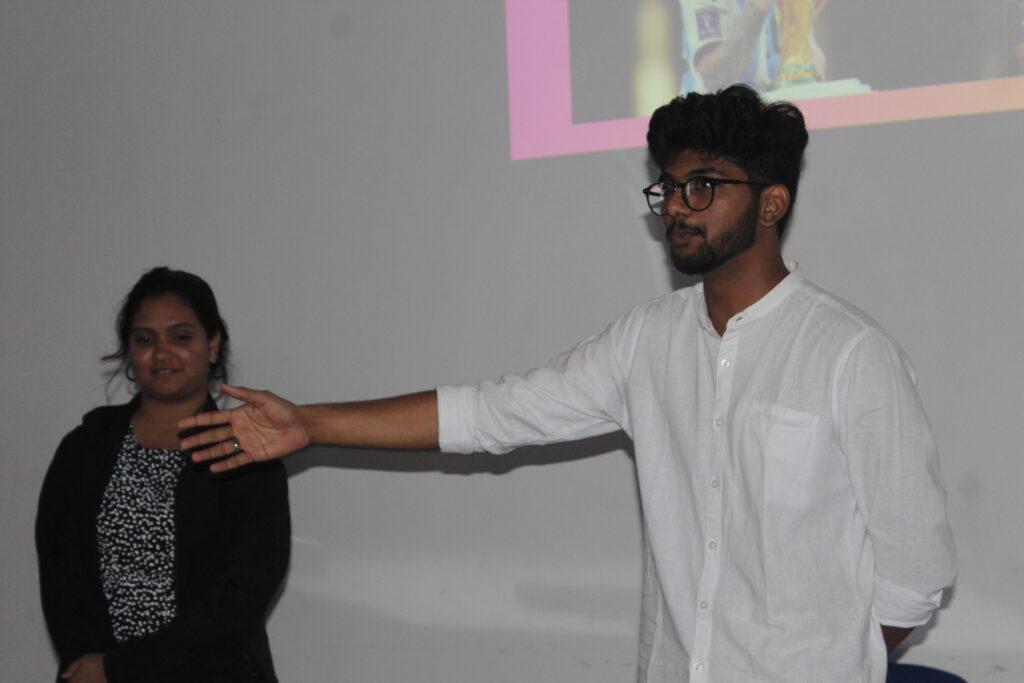
Roopal and Steffy followed next, educating the audience on “How to stay safe online?” Using a secure internet connection and stronger passwords, visiting only reliable websites and avoiding suspicious links are some practices which will prevent you from being the next scam victim. They spoke of the importance of being fully aware of what you do or agree to on the internet in today’s time when fraudsters are becoming increasingly intelligent.
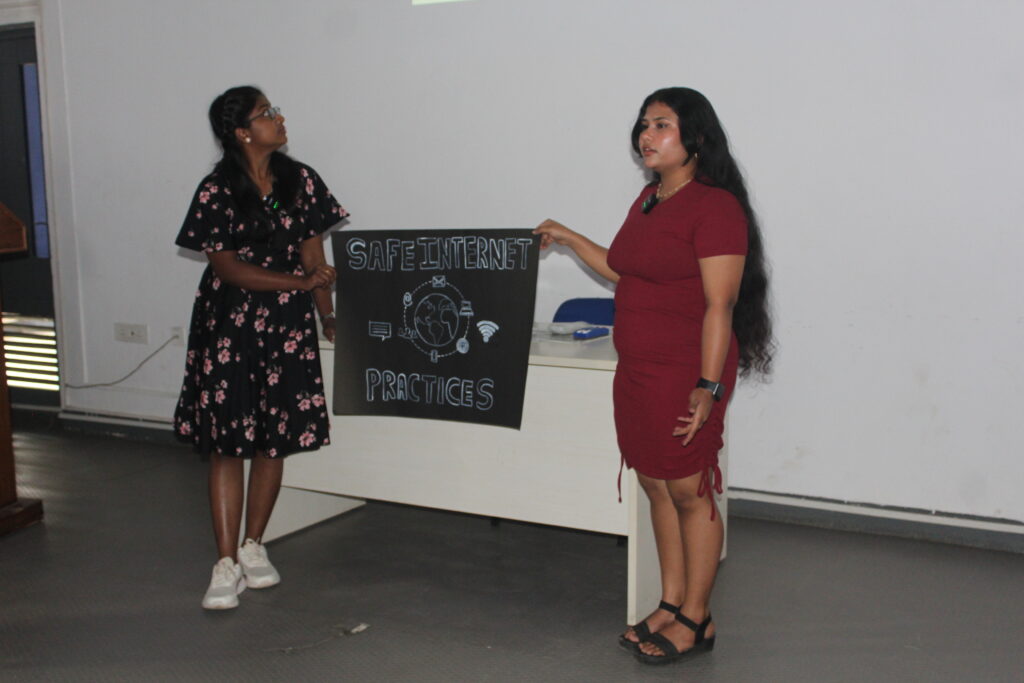
Lovely and Vandana, through the short presentation, enlightened the audience on the ways and means by which one can check fake information and steer clear of them. They explained how to use ‘Embed’ and ‘Google Reverse Search’: two tools to cross-check and verify information.
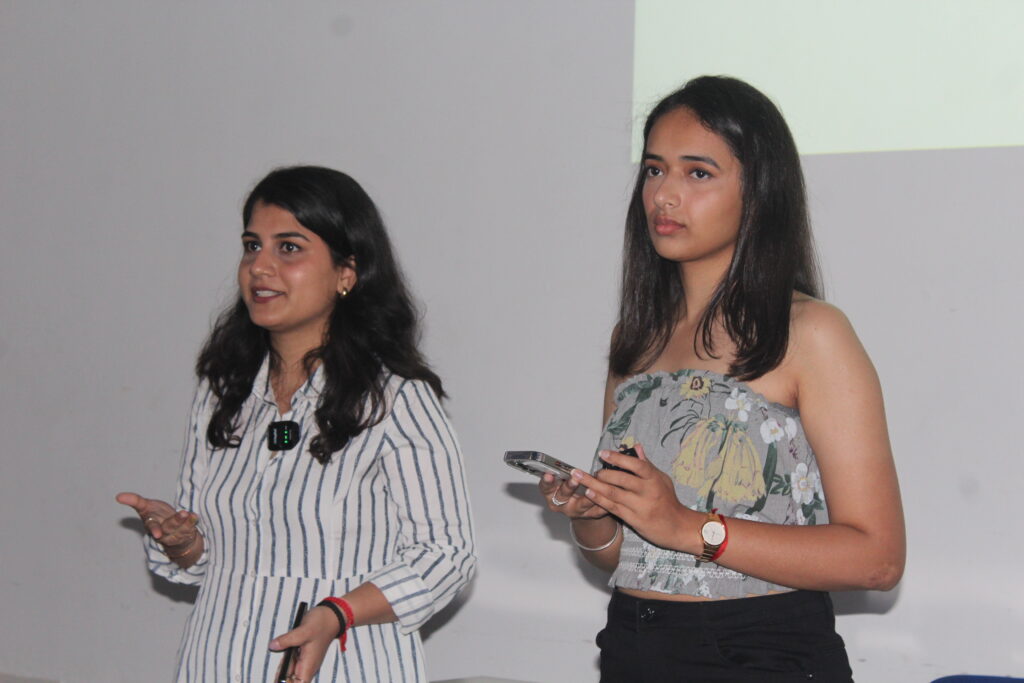
Cultural performances by the students:
Akankhya Rout recited a powerful poem on media literacy and the importance of staying vigilant and accountable while consuming and spreading news, or what poses as news.
A group of students sung ‘Badal pe paon hai’, a song about the spirit of unity and achieving success through true intentions and hardwork.
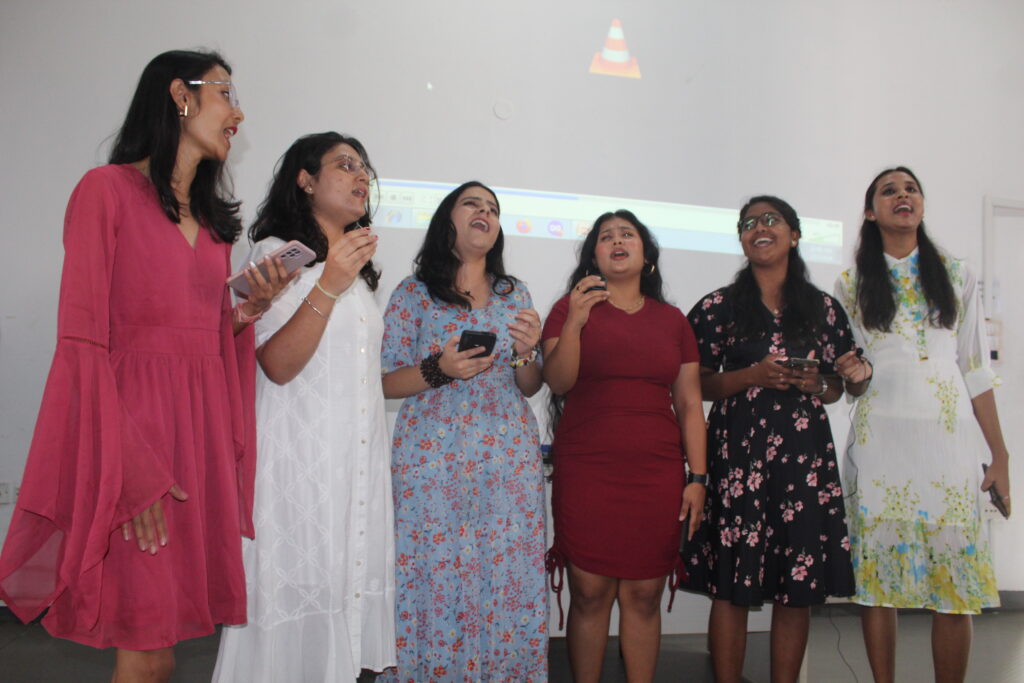
Rahul’s stand-up comedy was a witty piece; and ranged from his name to the Indian state of Rajasthan to death by camels to Lakshadweep to journalism– his performance incited laughter through puns, jokes and politically-heavy lighthearted statements. It also had statistics and figures, intentionally fake ones, to spread across the message of “Do not believe everything you see.”
A day dedicated to disseminating awareness and insights on conscious consumption of information, the media literacy festival was an eye opener for many.
We look forward to sharing more milestones with you in the coming months.
Stay tuned for more explorations into the world of Media Literacy in our next newsletter.

